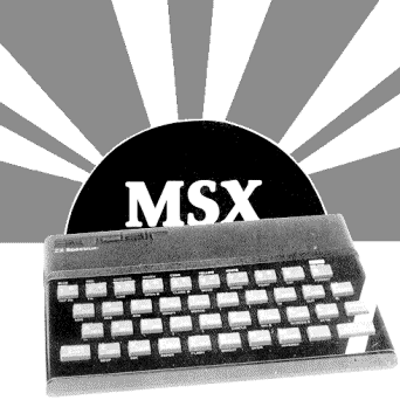


It was probably unfair and untrue — the remark one of my colleagues passed while standing in the queue at five to ten waiting for the doors of the Personal Computer Show at Olympia to open — that the large group of camera-dangled Japanese were the long-awaited MSX delegation. After all, the gentlemen in question looked suitably sober, whereas the real MSX delegation must have been doubled over in laughter at the extraordinary snub they had purposely offered to Europe’s most prestigious micro trade show.
For on Wednesday 19th of September, the trade and press day for the PCW Show, microcomputer journalists had been jetted to the shores the Mediterranean for a day trip to Juan-Les-Pins for the official launch of the MSX range of machines.
The Japanese are now set to conquer, preferably trampling underfoot British micros which may not have been a great hit in the States, but have nevertheless set the pace of development in an extraordinary way. The massive press campaign is starting, hoping to persuade us into forgetting that MSX is sadly sub-standard. In fact it’s over-rated, over-priced and over here. I have heard the argument that MSX will not seriously affect the existing Spectrum market because MSX — (machines that look cosy beside your expensive hi-fi cabinets) — will attract a new market, the middle-aged nouveau hacker. Well that may be the case, but I think it’s ignoring the fact that with a soundly established range of micros on the market which all accept a single type of cassette software houses in their own interests are bound to treat that market more seriously in the end. Will we see the day when the occasional Spectrum game is issued solely for the prestige value it brings?
The British have always been a bit quaint when it comes to commercial exploitation of a new invention. We have a history of egocentric genius inventors failing to make the big international grade with a good idea. Yet we British also love what they represent, the unquenchable spirit to create. Americans develop in close-knit teams, Japanese design in hit-squads, but the British invent alone. Well it’s not all true of course, but I bet if you ask most people who designed and built the Spectrum they all answer, Sir Clive Sinclair! (No one would seriously consider anything as unromantic as Sinclair Research). This propensity of ours for deifying a figurehead has its drawbacks though. It may put too much pressure on the person, disenabling the function of thinking clearly. It may cause everyone to overlook the fact that the person may not be the ideal one to market the invention properly. I’m not saying that Sinclair Research hasn’t done well generally, but the Spectrum has failed to really catch the attention of the international market despite its time advantage. Sir Clive himself seems to have taken a rather micro-utopian view of his machines and has a distinct impression of the future that has forgotten that his best machine (certainly the most successful) is a games machine competing in a market where other machines have advantages that the Spectrum could have had — indeed, could still have.
Spectrum owners have been almost fanatically loyal but the most common complaint nevertheless is about its sound capabilities. Recent translations of games from the Commodore 64 with its far more arcade-like graphics, have still shown well against the 64 originals, indeed in many cases have actually been an improvement. Yet we still have to look at games that are prevented from being graphically better than anything on the 64 because of the colour attribute problems. I’ve lost count of the times that a CRASH review has said, ‘lacks colour, but this avoids the worst problems of attributes’.
I don’t know how much these two extras would cost, whether they should be considered as something to be built into a new series of Spectrums or offered as an add-on unit, but I do think Sinclair Research should seriously consider them. There was talk, at one point earlier this year, of designing a new Spectrum somewhere in between the existing one and the QL, still a games machine but with a better keyboard (perhaps), sound and video display. Perhaps the arrival of MSX has made it commercially impossible to expend time and marketing money to ensure the sale of what would be an entirely new machine. But if that is the case (as I suspect it is) then the other alternative must be considered urgently. It seems a terrible pity to throw away all that Spectrum programmers have achieved in such an astonishingly short time, by letting it become swamped by inferior machines. After all, the design of the Spectrum may have been due to the genius of one man’s vision (and a dedicated team of electronics designers), but the scale of its success is also due to the extraordinary levels of invention by games programmers. The Spectrum no longer belongs to Sir Clive Sinclair to do with as he will. I am convinced that with drastically improved sound and graphics display, taken together with some of the marvellous programs that are currently being developed, that the Spectrum will stem the MSX floodtide, and then perhaps software houses will still see the computer as a viable machine in the future for those people who genuinely enjoy playing games that are more than games but mind- and reaction-stretching vehicles, and leave MSX to be the middle-aged coffee table toy where it need do no more harm than any TV encased in a fake rosewood cabinet.
Good news for fans of our comic strip from Ultimate. In both the December and Christmas Special issues, there will be a double helping of Jetman presented as a double-page spread. Judging by many of your letters, Jetman has become a firm favourite, so we are very pleased that Ultimate are happy to supply us with more pages of the idiot space hero for the Christmas period.